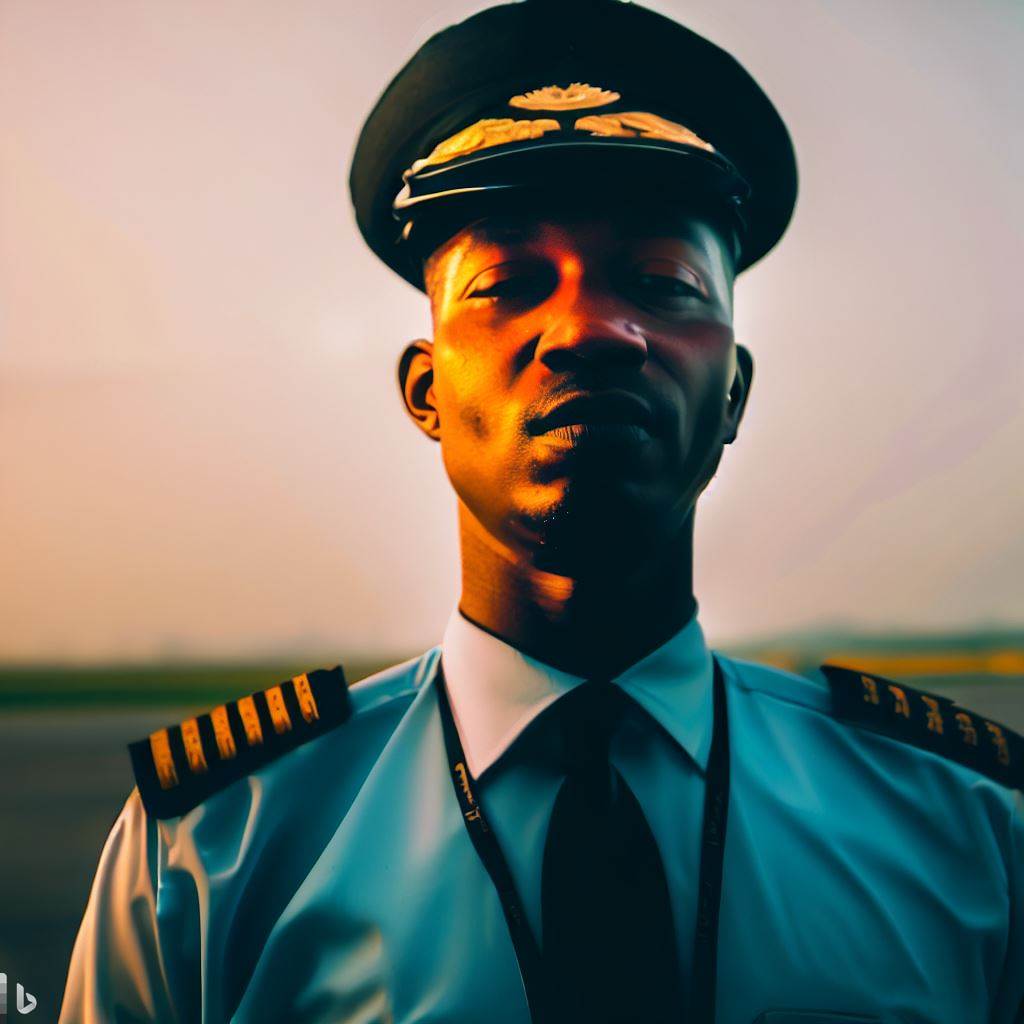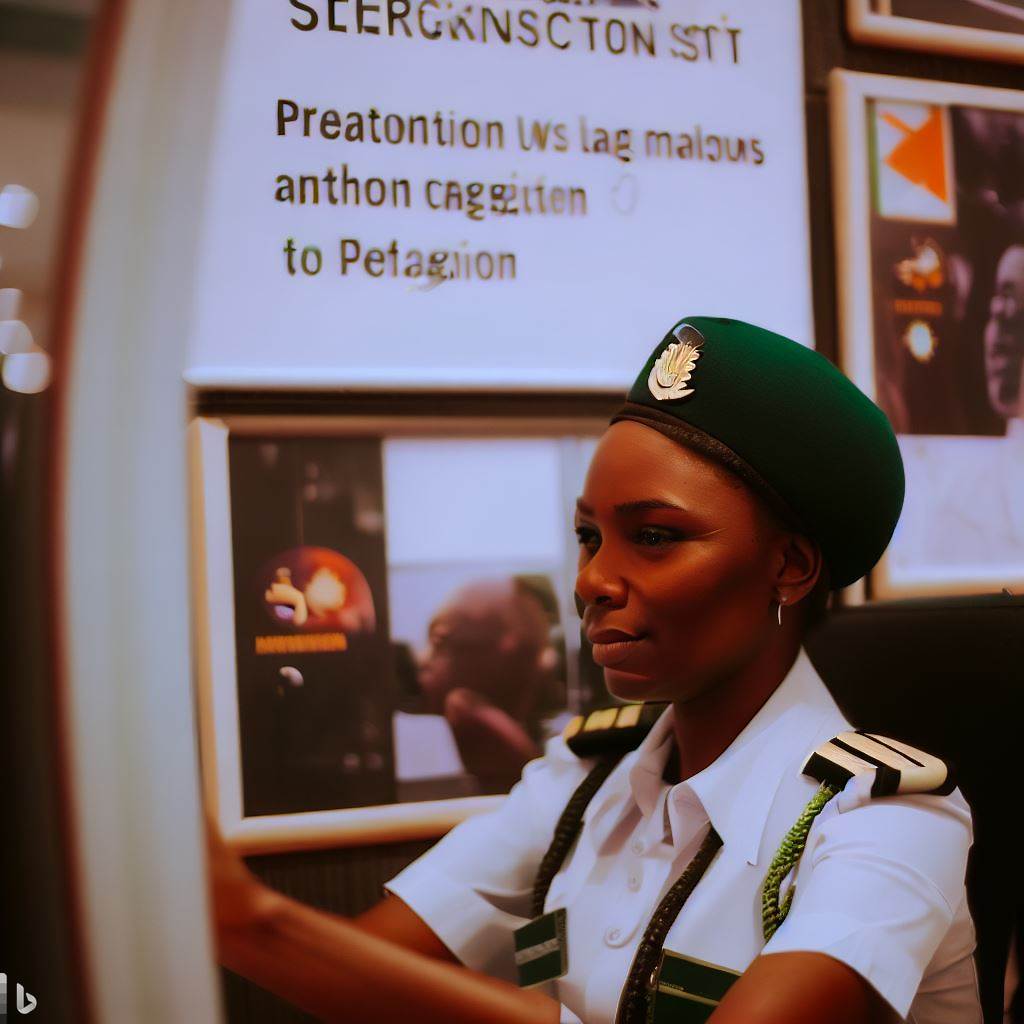Introduction
Aviation training schools play a vital role in the development of the aviation industry in Nigeria. As one of the fastest-growing industries in the country, aviation demands quality training to sustain its growth.
Aviation training schools provide the necessary skills and knowledge to aspiring pilots, air traffic controllers, aviation maintenance technicians, cabin crew, and other aviation-related specialists.
These schools equip students with the skills and knowledge necessary to competently perform their roles in the aviation industry.
Nigeria boasts of several aviation training schools spread across the country. These schools provide courses that range from private pilot license to commercial pilot license, aviation management, aviation safety, airport security, air traffic control, and aviation maintenance.
The Nigerian College of Aviation Technology, Zaria, is the foremost aviation training institution in the country. Established in 1964, the college has been at the forefront of aviation training in Nigeria and has produced top-notch professionals in the aviation industry.
There are also several privately-owned aviation training schools in Nigeria that offer world-class training programs. These schools have state-of-the-art facilities and equipment that provide students with practical and hands-on training.
In essence, aviation training schools in Nigeria play a vital role in nurturing and producing competent aviation professionals.
As the aviation industry continues to grow, the need for quality training programs will continue to be in high demand.
Individuals aspiring to become aviation professionals should seek admission to these training schools to build a successful career in the industry.
Read: Exploring the Life of an Air Traffic Controller in Nigeria
Types of Aviation Training Schools in Nigeria
Aviation training schools offer a wide range of programs that cater to various career paths in the aviation industry. In Nigeria, there are different types of aviation training schools, each specializing in a particular area:
- Flight Training Schools: These schools provide training for individuals who want to become pilots. They offer programs that cover both theory and practical training, including classroom lectures, simulator exercises, and actual flight training. Flight training schools in Nigeria are regulated by the Nigerian Civil Aviation Authority (NCAA).
- Maintenance Training Schools: These schools offer courses that prepare individuals for careers in aircraft maintenance and repair. Programs cover a wide range of subjects, including aircraft systems, avionics, engines, and structures. Graduates of maintenance training schools can work as technicians, mechanics, or engineers in the aviation industry.
- Cabin Crew Training Schools: These schools train individuals to work as flight attendants in commercial airlines. Programs cover topics such as safety procedures, customer service, and emergency response. Graduates of cabin crew training schools can work for both local and international airlines.
- Air Traffic Control Schools: These schools provide training for individuals who want to pursue careers as air traffic controllers. Programs cover topics such as air traffic management, communication skills, and navigation procedures. Air traffic control schools in Nigeria are also regulated by the Nigerian Civil Aviation Authority.
Each type of aviation training school has its specific requirements for admission, duration of study, and certification.
Prospective students are often encouraged to research each school thoroughly before enrolling in any program.
To ensure that aviation training schools in Nigeria provide quality training and produce competent professionals, the Nigerian Civil Aviation Authority has set specific standards and guidelines that schools must adhere to.
These measures include:
- Regular inspection and certification of aviation training schools to ensure they meet safety standards and instructional requirements.
- Setting minimum requirements for instructors, such as experience and qualifications in their respective fields.
- Regulating the content and structure of training programs, including the number of hours and types of training required for each course.
- Conducting oversight and evaluation of training schools to ensure they maintain the highest levels of instruction and adherence to regulatory guidelines.
Overall, the aviation industry in Nigeria is growing and providing opportunities for qualified professionals. Aviation training schools play a crucial role in preparing these individuals and equipping them with the skills and knowledge needed to meet the demands of this fast-paced and challenging industry.
Read: Role of Women in Nigeria’s Aviation Industry
Accreditation and Certification of Aviation Training Schools in Nigeria
Aviation training schools in Nigeria are accredited and certified by government agencies and international bodies to ensure that they meet specific standards as far as aviation training is concerned.
Given that aviation is a highly regulated industry, it is paramount that the institutions providing training are licensed to do so.
Below are some of the organizations responsible for accrediting and certifying aviation training schools in Nigeria:
Nigerian Civil Aviation Authority (NCAA)
The Nigerian Civil Aviation Authority is the government agency responsible for the regulation of civil aviation in Nigeria.
As such, it is responsible for ensuring that aviation training schools comply with the applicable regulations and standards.
To be accredited by the NCAA, aviation training schools must undergo rigorous scrutiny to ensure that they meet the minimum requirements.
International Air Transport Association (IATA)
The International Air Transport Association is a trade association representing the airline industry worldwide.
It is responsible for setting international standards for the aviation industry, including safety and security standards.
Aviation training schools that are accredited by IATA have demonstrated a commitment to meeting the high standards set by the organization.
Federal Aviation Administration (FAA)
The Federal Aviation Administration is the national aviation authority of the United States. It is responsible for setting standards for the aviation industry in the US, including standards for aviation training.
FAA-certified aviation training schools meet high safety and competency standards.
Accreditation and certification are optional but recommended for Nigerian aviation schools.
Accredited and certified institutions show commitment to international standards and quality training for students.
Graduates from such schools gain better recognition from employers in Nigeria and abroad.
Summarily, accreditation and certification of aviation training schools in Nigeria is essential to ensure that students receive quality training and graduate with the necessary skills to excel in the aviation industry.
As such, it is recommended that aviation training schools seek accreditation and certification by reputable organizations such as NCAA, IATA, and FAA to provide their students with the best possible chance for success in their careers.
Read: Nigeria’s Aviation Sector: Salary and Compensation

Top Aviation Training Schools in Nigeria
Nigeria is a country full of promise and potential, and the aviation industry plays an important role in that potential. Aspiring pilots and aviation professionals who are looking to hone their skills and gain certification can do so at a number of top-notch aviation training schools in Nigeria. Here are five of the best:
Nigerian College of Aviation Technology (NCAT)
Founded in 1964, the Nigerian College of Aviation Technology is a leading aviation training school in Nigeria.
NCAT, situated in Zaria, Kaduna State, offers diverse aviation courses, including Air Traffic Services and Aircraft Maintenance Engineering.
Its comprehensive curriculum, experienced instructors, and excellent facilities contribute to its high reputation.
International Aviation College (IAC)
The International Aviation College is located in Ilorin, Kwara State, and is a joint venture between the Nigerian government and the Canadian-based Flight Training and Simulation Company (FTS).
The college offers a range of aviation programs, including Commercial Pilot License (CPL), Private Pilot License (PPL), Multi-Engine Rating, and much more.
With state-of-the-art training facilities and experienced instructors, IAC is definitely one of the top aviation training schools in Nigeria.
Landover Aviation Business School
The Landover Aviation Business School is another top aviation training school in Nigeria, offering certificates, diplomas, and degrees in various aviation-related disciplines.
Located in Lagos, the school has a range of programs suitable for pilots, aviation managers, and other aviation professionals.
Courses on offer include the Airline Cabin Crew Course, Aviation Safety Management Course, and Certified Aviation Manager Course, among others.
Aeroconsult Aviation Training School
Aeroconsult has been operating in Nigeria since 1985 and is recognized by the Nigerian Civil Aviation Authority (NCAA) as a reputable aviation training school.
Located in Lagos, Aeroconsult offers a range of aviation-related courses, including Cabin Crew, Air Hostess, and Flight Dispatch training programs.
With a team of dedicated and experienced instructors, Aeroconsult is a great choice for anyone looking to gain a foothold in the aviation industry in Nigeria.
Pan African College of Aviation and Management Studies (PACAMS)
PACAMS, situated in Jos, Plateau State, provides accredited aviation courses recognized by NCAA, IATA, and Nigerian Air Force.
It offers Air Traffic Control, Airport Management, Aviation Security, and other courses. Students across Nigeria prefer PACAMS for its comprehensive curricula and excellent facilities.
With so many top aviation training schools in Nigeria, aspiring pilots and aviation professionals have plenty of options when it comes to getting the training they need to succeed.
Whether you choose NCAT, IAC, Landover Aviation Business School, Aeroconsult Aviation Training School, or PACAMS, you can be sure you’ll receive high-quality training that will prepare you for a successful career in the aviation industry.
Read: Steps to Becoming a Pilot in Nigeria: A Comprehensive Guide
Admission Requirements and Fees for Aviation Training Schools in Nigeria
Before deciding to pursue a career in aviation, it is important to understand the admission requirements and fees for aviation training schools. Here are the requirements and costs associated with aviation training schools in Nigeria:
Age Requirements
- In order to apply for aviation training, the applicant must be at least 17 years old.
- There is no upper age limit for aviation training in Nigeria.
Educational Requirements
- Applicants must have a minimum of five (5) credits in their O’ Level results, including Mathematics, English, and Physics.
- Applicants must have a Bachelor’s degree in any field, or a Higher National Diploma (HND) certificate, or an Ordinary National Diploma (OND) certificate coupled with a Private Pilot License (PPL).
Medical Requirements
- Applicants must undergo a medical examination to ensure that they are fit to fly aircraft.
- The examination includes a vision test, hearing test, and general medical check-up.
- The medical examination must be conducted by an approved medical practitioner.
Cost of Tuition and Fees
- The cost of aviation training in Nigeria varies depending on the school and the course of study.
- On average, the cost of tuition for a private pilot license course is around ₦1,500,000 Nigerian Naira (NGN).
- However, the cost of tuition for a commercial pilot license course is around ₦7,000,000 Nigerian Naira (NGN) or more, depending on the school.
- Aviation training incurs additional fees like registration, examination, and flight simulator fees, apart from tuition.
- It is important to research and compare the costs of different aviation training schools before making a decision.
Essentially, pursuing a career in aviation can be a lucrative venture. However, it requires a significant investment of time, effort, and money.
By understanding the admission requirements and fees for aviation training schools in Nigeria, aspiring pilots can make an informed decision about their career path.
Challenges Facing Aviation Training Schools in Nigeria
In Nigeria, aviation training schools face significant challenges.
First and foremost, limited funding represents a formidable barrier. Schools often lack the essential financial resources required for operating modern aircraft simulators or acquiring advanced learning materials. This shortfall makes it difficult for these institutions to offer world-class aviation training.
Secondly, the schools grapple with inadequate infrastructure. Most aviation training facilities in Nigeria have outdated, poorly-maintained equipment, limiting the hands-on experience for trainees.
To compete globally, these schools need state-of-the-art training equipment, updated facilities, and comprehensive practical training courses.
Thirdly, there is poor government support. While other countries heavily invest in their aviation training schools, Nigeria’s government has not prioritized this sector.
The need for policy interventions, better regulations, and increased budgetary allocations remains unaddressed. Increased governmental involvement could significantly enhance the performance of these schools.
Lastly, an inadequate workforce compounds these challenges. A dearth of well-trained, experienced instructors limits the quality of education.
Moreover, most schools lack the necessary administrative and maintenance staff, further straining their resources.
In short, Nigerian aviation training schools face a host of challenges. From limited funding to inadequate infrastructure, from poor government support to workforce scarcity, these issues need urgent attention.
With the right interventions, Nigeria could be on its way to establishing world-class aviation training schools.
Discover More: Nigeria’s Aviation Sector: Salary and Compensation
Conclusion
Aviation training schools in Nigeria have made commendable strides. Institutions like the Nigerian College of Aviation Technology (NCAT) and International Aviation College (IAC) continue to produce world-class aviation professionals.
However, gaps still exist. The need for state-of-the-art equipment and updated curriculum is pressing.
To improve, here are three suggestions:
- Increase funding: More resources can aid in acquiring advanced training tools and equipment.
- Review curriculum: Constant revision to match global standards is paramount.
- Staff development: Training instructors with up-to-date knowledge fortifies the teaching force.
By embracing these improvements, Nigerian aviation schools can propel into international recognition. Together, let’s make our aviation schools better.




